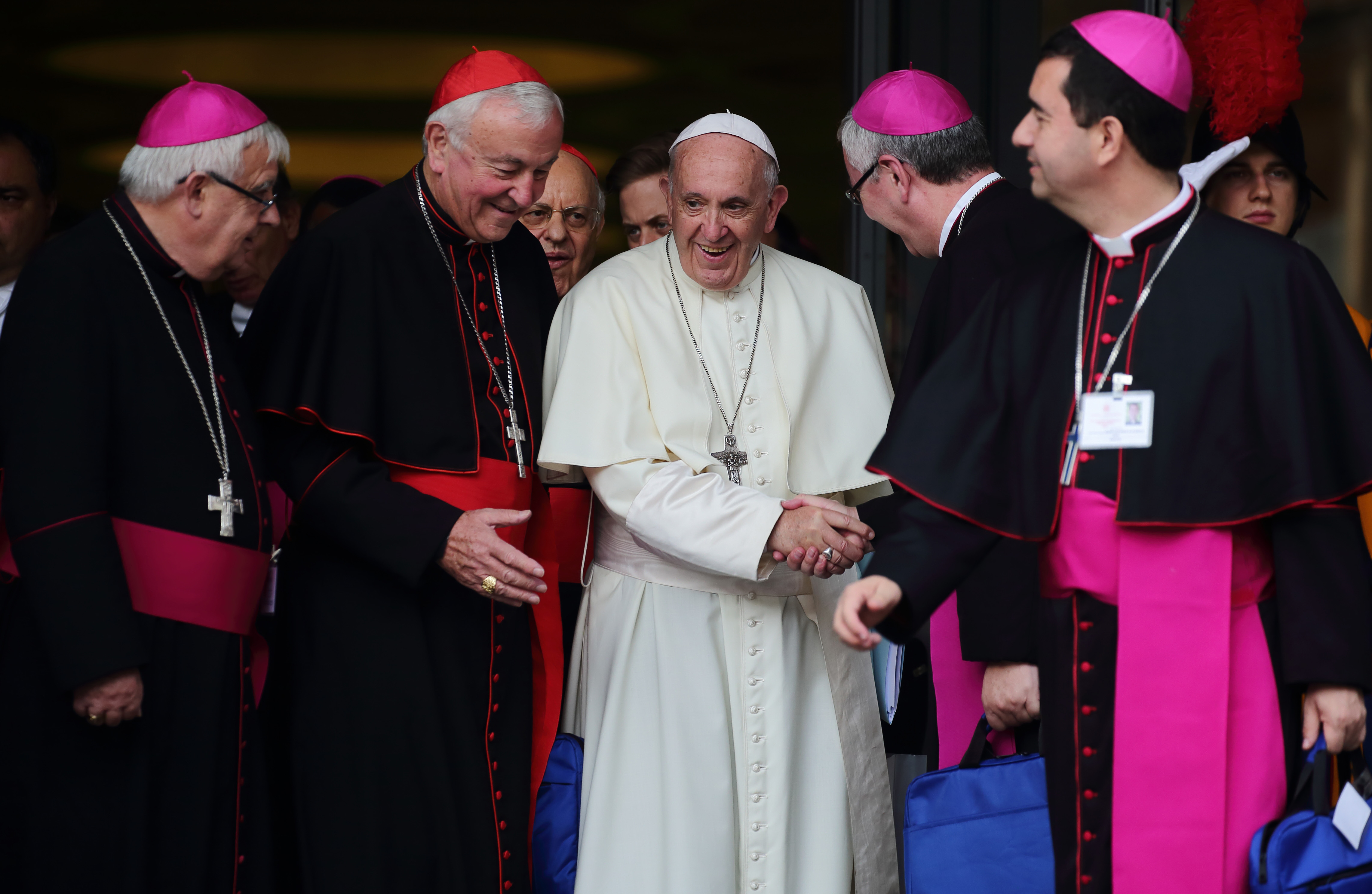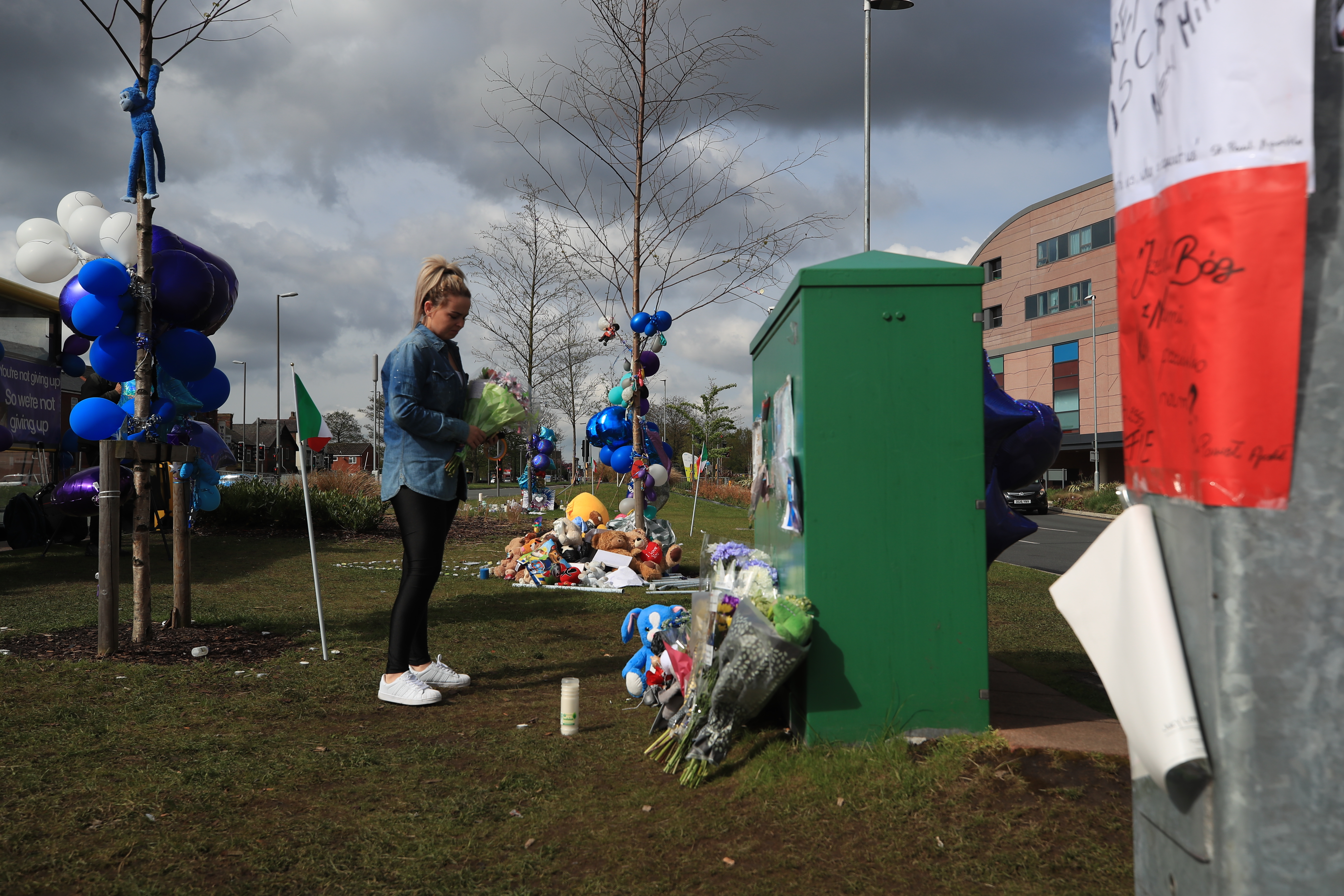The Archbishop of Liverpool says the Vatican now has a “greater understanding” about the case of Alfie Evans, the toddler with an unnamed neurological condition whose end of life care became the centre of a bitter legal dispute.
The tragic story of Alfie, who died on 28 April 2018 in Liverpool’s Alder Hey hospital, garnered intentional attention and attempts by the toddler’s parents to take him to Rome to be cared for at the Holy See’s Bambino Gesu hospital. Pope Francis met with Alfie’s father, Tom Evans, in the Vatican and through his twitter account asked that the parents’ “desire to seek new forms of treatment may be granted”.
Speaking to The Tablet at the end of the Bishops of England and Wales’ Ad Limina pilgrimage to Rome, Archbishop Malcolm McMahon reported how he was able to brief senior figures in the Roman Curia about the legal issues raised by Alfie’s suffering and death.
“They [the Vatican] understand the part the family courts play in English law, and in our country, which is not the same as other countries,” he said during an interview in Rome. “They also understand how public hospitals don’t give poor medical care, but are centres of excellence linked with children’s hospitals throughout the world.”
British judges repeatedly ruled against an attempt by Alfie’s parents to transfer their son to Rome while Alder Hey hospital wished to switch off the toddler’s life support which had been help keep him alive for 18-months.
But the hospital and the judges were fiercely criticised by pro-life groups, right-wing political parties in Italy and parental rights campaigners. At one point angry protesters tried to storm Alder Hey and the Church leadership in England and Wales came under fire for supporting the hospital.
Archbishop McMahon, who spoke briefly with the Pope about Alfie in April, said that the “detailed reports” he had been sending to the Vatican at the time “seemed to get a bit dissipated”.
He had sought to explain the role of British law in defending the interests of the child while pointing out the despite the best intentions of the Bambino Gesu to offer help, Alder Hey is an internationally respected hospital that had exhausted the avenues of medical treatment for Alfie.
The archbishop said he had been able to get these points across during his discussions with senior members of Holy See dicasteries during the Ad Limina,
“They’ve learnt the chaplaincy services we provide are thorough,” he explained, adding that Alfie’s family had been supported by a priest and a female lay chaplain who is a former nurse.
“There were other pressures on the parents,” Archbishop McMahon explained. “People didn’t always understand about protecting children’s rights through the courts.” This didn’t mean that parents rights were “disregarded” but that “somebody had to speak up for the child”.
He emphasised: “At the centre of it all was this little family with their tragedy which was taking over their lives.”
More broadly, the 69-year-old Dominican archbishop pointed out he had detected shift in the Vatican’s approach to the English bishops over the years. “Ad Limina Apostolorum” – “to the tombs of the apostles” – are supposed to take place every five years and include a meeting with the Pope and dicasteries of the Roman Curia.
“I think the general attitude of the Vatican departments to the English and Welsh bishops’ conference has changed remarkably over the many years I’ve been coming to Rome. It’s my third Ad Limina visit and there’s a degree of openness in the dicasteries that wasn’t there in my first visit,” he said.
While there “used to be tension” with some parts of the Roman Curia, this started to change under Benedict XVI in 2010, and in the 2018 meetings “we’ve been met with nothing but openness and a willingness to help and that is right across the board, from the Holy Father, the Secretariat of State and other departments.”
This new openness, the archbishop explained saw the bishops discuss with the Roman Curia questions such as the role of women in the Church, a topic that traditionally make some in the Vatican jumpy.
“We feel we’ve got to go back to the drawing board, to look at [women’s] role in the Church, and the complementary of the sexes,” the archbishop said. “There’s so much theological work that has to be done there, which hasn’t been done. If you start at the other end, and think about ordaining women, then you are not doing justice to our understanding of male and female, and creation theology.”
Archbishop McMahon also talked about the bishops’ meeting with Francis. He confessed to being a “little apprehensive” because he used to appreciate the 15-minutes one-on-one time bishops used to get with the Pope. Under Francis they have a group gathering and open discussion.
But the Archbishop said during the meeting he saw “a Chief Apostle sharing his life, his ups and downs, his dilemmas, how he makes decisions, his prayer, his closeness to the Lord, the peace he has in his own heart. That itself is a great experience.”
While there were “general comments” about some of the difficulties facing the Pope, the archbishop said Francis “has kept his peace” and “is a man who sleeps at night”.
For his part, the Argentine Pope urged the bishop to remain joyful, at peace and not to keep a sense of humour: at one point during the two-and-a-quarter hour meeting Francis told them how much he appreciated the jokes of St Thomas More, the English saint and martyr. Archbishop McMahon added that the Pope told the bishops to “act as if we had a Caffè Latte for breakfast and not a bowl of vinegar.”
He explained that the Pope’s way of leading “is to enter into our dilemmas, our pain, our joys and to guide us like a father”.
“There could be some ambiguity in that, but life is ambiguous. I would suggest he doesn’t see that has a big problem, because Jesus also entered into life with us, to walk with us, to suffer with us – to teach us as well – and to heal us,” the archbishop said.
“Yes, it’s not all cut and dried maybe as it was before, but there’s been no break with the tradition and the teaching with the Church. We have a Pope who has opened his heart to us, and that’s what we need at this moment in time.”
Finally, the archbishop talked about plans in Liverpool for a diocesan synod which will take place in 2020. Shifting demographics and a declining numbers of priests demands a re-configuring of the archdiocese’s mission, but the archbishop said he would “never close a church due to shortage of priests”, but rather because the congregation had "dwindled”.
In the case of St Mary’s Warrington, the archbishop invited the FSSP (the Priestly Fraternity of Saint Peter) after the monks of Ampleforth Abbey pulled out from running the parish in 2012. The priests of the FSSP celebrate the sacraments solely in the extraordinary form, and the archbishop praised their ministry in the parish.
“The lights are still on, and the music is coming out through the doors,” he said. “The sign we are giving is that the Catholic Church is alive and well in the centre of Warrington. The priests are very pastoral, and they preach good sermons, and they are available for confessions every day.”



 Loading ...
Loading ...